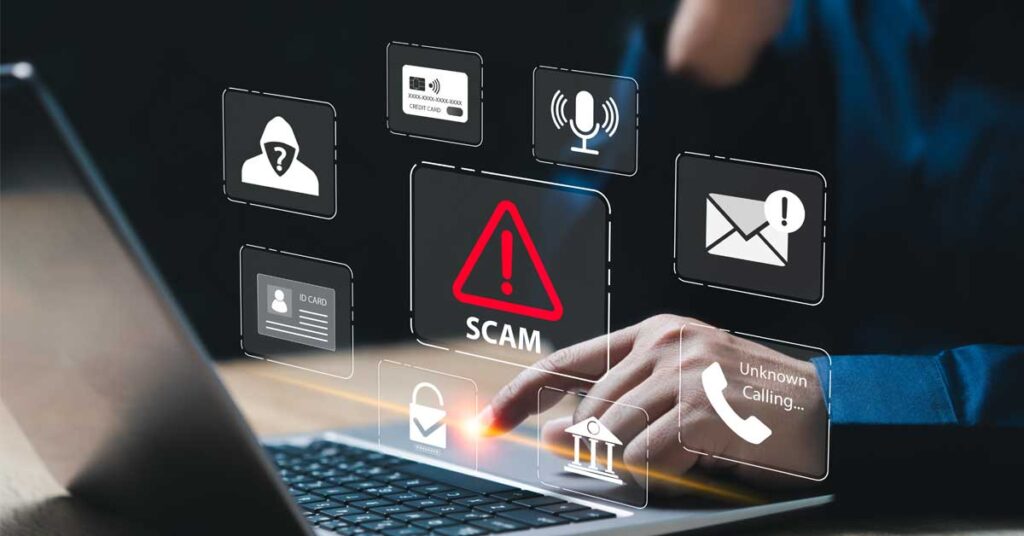Data Breach Scams: How to Protect Yourself from Fraud

Data breaches are becoming more common, and with them come scams that can put your personal and financial security at risk. When your data is leaked, fraudsters often try to exploit it through phishing emails, identity theft, and other scams. In this post, we’ll explore how data breach scams work and what you can do to stay protected.
How Do Scammers Exploit a Data Breach?
When a company suffers a data breach, hackers may steal sensitive information such as:
• Names, addresses, and contact details
• Email addresses and passwords
• Banking details and payment information
• National Insurance numbers and other identity documents
Cybercriminals can use this data to commit fraud, such as:
✅ Phishing Scams – Fraudsters send fake emails or texts pretending to be from a trusted company, tricking you into providing more personal details.
✅ Account Takeovers – If passwords are leaked, criminals can try to access your online accounts.
✅ Identity Theft – Scammers may use stolen details to apply for credit, loans, or even benefits in your name.
✅ Fraudulent Calls – Criminals may pose as banks, HMRC, or other official bodies to extract sensitive details from you.
How to Protect Yourself from Data Breach Scams
1. Check if Your Data Has Been Leaked
Use websites like Have I Been Pwned to check if your email or password has been compromised.
2. Change Your Passwords Immediately
• If you suspect a breach, change your passwords for any affected accounts.
• Use strong, unique passwords for each account.
• Consider using a password manager to keep track of them securely.
3. Enable Two-Factor Authentication (2FA)
Adding 2FA to your accounts provides an extra layer of security, making it harder for hackers to access them.
4. Be Wary of Phishing Emails and Texts
• Don’t click on links or download attachments from unexpected messages.
• Double-check the sender’s email address—scammers often use addresses that look almost identical to legitimate ones.
• If in doubt, contact the company directly using official contact details.
5. Monitor Your Bank Statements
Regularly check for any unauthorised transactions and report anything suspicious to your bank immediately.
6. Watch Out for Fake Calls
• Scammers may pretend to be from your bank or a government agency.
• If someone calls unexpectedly asking for personal details, hang up and call the organisation back on their official number.
7. Be Careful What You Share Online
The more personal details you share on social media, the easier it is for scammers to target you. Avoid posting sensitive information such as your full name, birthday, or address.
What to Do If You’ve Been Affected by a Data Breach Scam
1. Report the Fraud – Contact Action Fraud (www.actionfraud.police.uk) to report the scam.
2. Notify Your Bank – If financial details have been compromised, inform your bank immediately.
3. Check Your Credit Report – Sign up for credit monitoring services to detect any suspicious activity.
4. Claim Compensation – If a company failed to protect your data properly, you may be eligible for data breach compensation.
Are You a Victim of a Data Breach? You Could Be Entitled to Compensation
If a company has failed to keep your data secure, you may have the right to claim compensation for financial loss or emotional distress. At SBW Law, we specialise in data breach claims, helping clients get the justice they deserve.
📞 Contact us today for a free, no-obligation consultation
